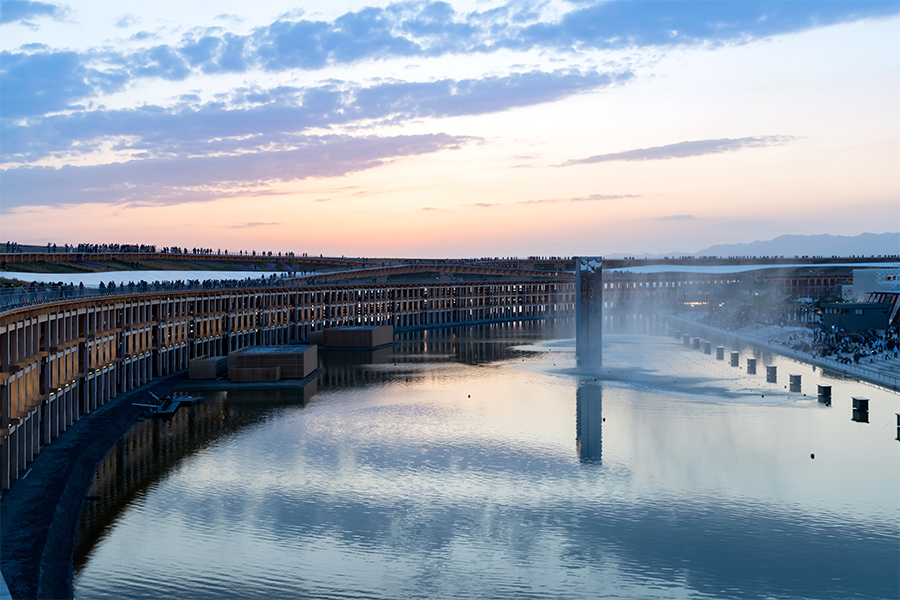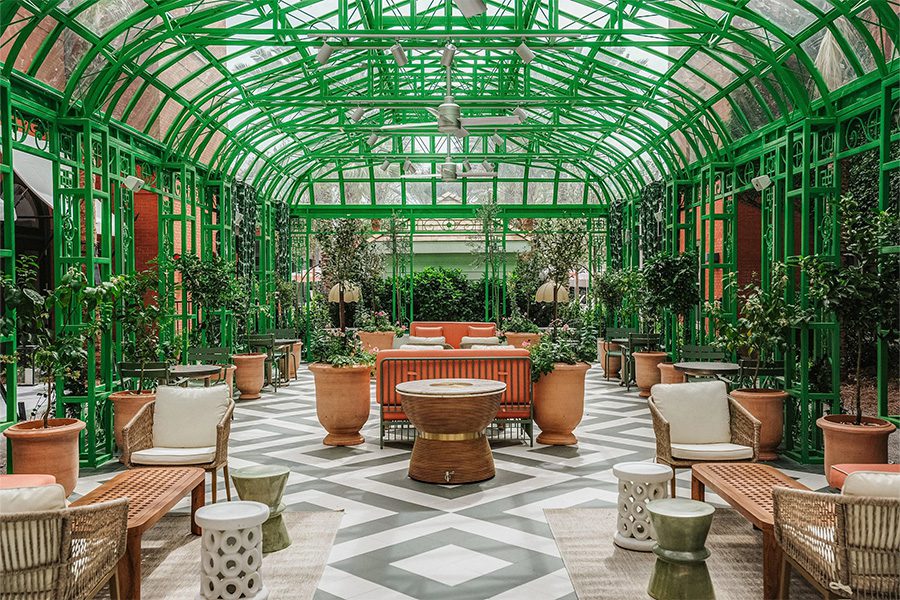The James Beard Awards announces cancellation amid controversy, Layer designs a cinema seat for the post-COVID era, and private jets take off. All this and more in this week’s Five on Friday.
The James Beard Awards announces cancellation
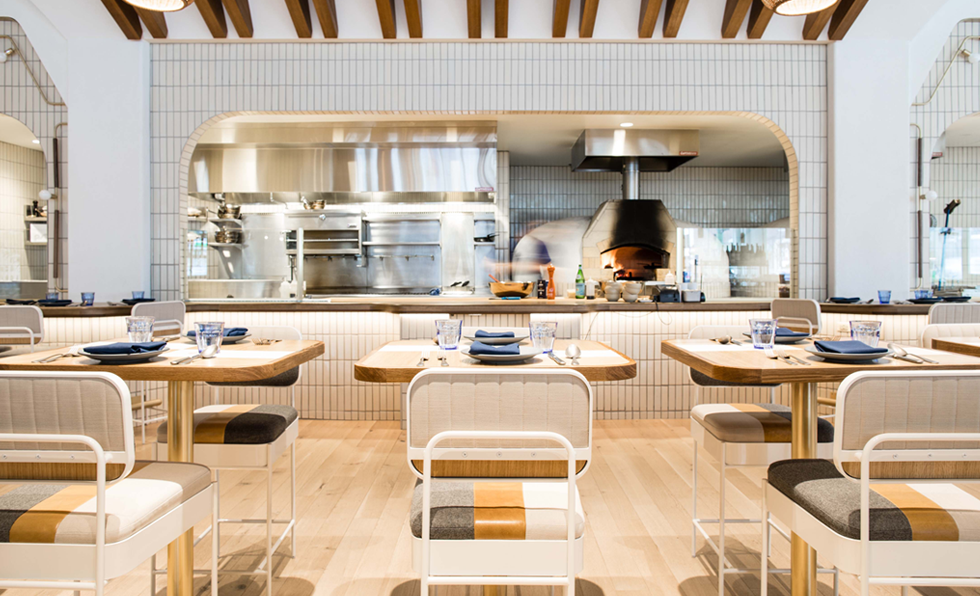
Designed by Parts and Labor Design, Pacific Standard Time in Chicago, the 2019 James Beard Foundation Restaurant Design Award winner; photo by Gilbert Ortiz
The prestigious James Beard Awards was effectively cancelled this week, with the foundation acknowledging the impact of COVID-19 and other upheavals within the restaurant industry as a compromise in effective judgment. The New York Times reports that this year’s winners will not be announced, and next year’s awards will not take place at all. However, COVID-19 only warrants partial blame for the cancellation. According to The Times as well as Eater, a number of honorees withdrew themselves from consideration for reasons ranging from the personal to explicit and documented allegations. In the wake of George Floyd’s murder and the residual Black Lives Matter movement, employees throughout the industry have also spoken out against unequal treatment and harmful practices previously dismissed or normalized. Moreover, out of 23 categories, no Black nominees were named winners this year.
Layer designs movie theater seat for post-COVID era
If you find yourself conflicted over whether or not to risk your life in a movie theater to see Tenet, consider waiting until these newly conceived seats from Layer are installed in your nearest multiplex. Conceptualized for cinema brand Sequel, the seats echo the midcentury-inspired pastels of Wes Anderson films with a composition of antibacterial copper threads and fibers integrated with copper oxide due to its antibacterial, antiviral, antifungal properties, writes Dezeen. The 3D-knitted, stain-resistant Sequel seat is designed to eliminate crevices or dirt traps, and each modular seat is equipped with advanced audio technology as well as a swiveling polymer side table, temperature controls, and a recliner.
Private planes see an uptick in passengers
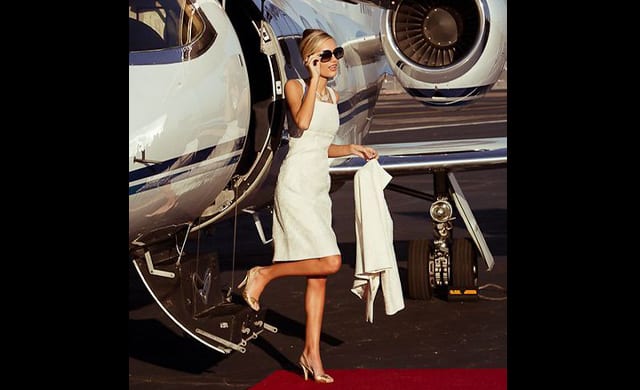
Luxury private jet; photo courtesy of Hush Hush
Since March, leisure travelers have contributed to an uptick in private jet travel. Charter company FXAir tells Skift that new business has risen to 50 or 60 percent this year, a staggering increase ahead of projections closer to 8 or 10 percent. While private flights often cost up to 10 times more than commercial airfare tickets, many travelers are still wary of commercial flight as uncertainty about each airline’s dedication to sanitation protocols remain in doubt. Even though only about 10 percent of travelers who can afford to fly private do so, the state of the world may steer the ultra-wealthy more consistently into the private skies.
New York restaurateurs prepare lawsuit
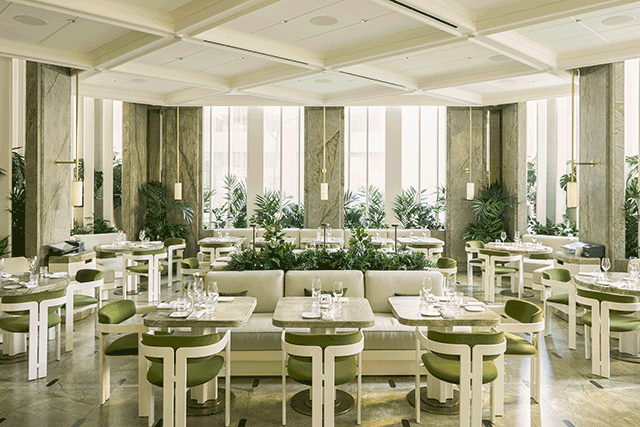
Le Jardinier in New York, designed by Joseph Dirand; photo by Adrien Dirand
As New York restaurateurs stare down October 31st as the conclusion of outdoor dining in the city, the fate of numerous dining rooms remains as uncertain as ever. New York Mayor Bill de Blasio confirmed in an interview with WNYC last week that no plans are in place for a transition to indoor dining this fall. And the sense of doom is palpable. Earlier this month, restaurateurs in New York banded together to reveal plans of delivering a class-action lawsuit against the City of New York for its refusal to permit indoor dining, according to Eater. Owners argue that the city has met the same criteria as markets throughout the state to maintain low rates of COVID-19 infection, yet the city remains the state’s sole market excluded from reopening dining rooms. More than 1,500 New York-based gym owners who previously announced plans to file a similar class-action lawsuit were ultimately sated with the city’s decision to reopen gyms beginning in September.
Designers reimagine how we live, work, and play today
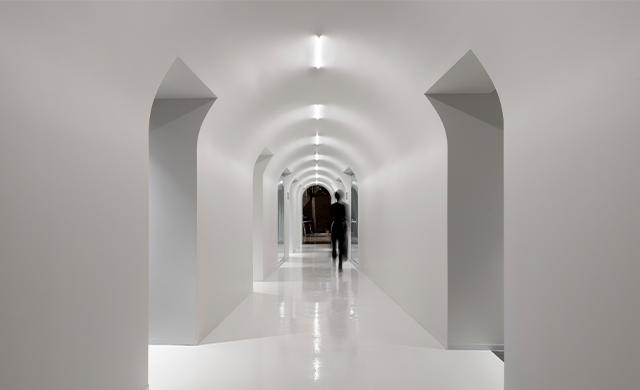
The Lightspeed office in Montreal, designed by ACDF; photo by Maxime Brouillet
Designers spoke with HD about how COVID-19 continues to shape our built environments. With safety top of mind, tactics like spatial flexibility, invisible service, stylish cleanliness, and protection to connection have become essential for brands like Davidson Hotels & Resorts and Concord Hospitality. While some designers heed these concerns, others are imagining new spaces altogether, like a subterranean bunker, cocoon-like pods, restaurant kit of parts for outdoor dining, and open-air classroom environments.


